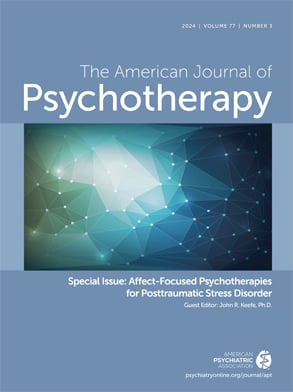Group Psychotherapy as a Specialty: An Inconvenient Truth
Abstract
Highlights
The Public Need for Group Psychotherapy
Utilization of Group Therapy
Variability in Training
What Is a Specialty and Who Qualifies as a Specialist?
Establishment of the GPGP Specialty
Diversity (Criterion III)
Distinctiveness (Criterion IV)
Effectiveness and Quality Improvement (Criteria IX and X)
Specialty Accreditation and Alignment of Training Programs
Practice Guidelines (Criterion XI)
Training Guidelines
Taxonomy
| Stages of education and training | ||||
|---|---|---|---|---|
| Level of training | Doctoral | Internship | Postdoctoral | Postlicensure |
| Major area of study | 96 hours didactics, between doctorate and internship to include practicum | Didactics (see doctoral); 50 hours as facilitator or cofacilitator and 30 hours supervision | 80%–100% of residency to include didactics, clinical practice, supervision, and presentations | 50 hours organized CE, 50 direct hours with supervision in specialty |
| Emphasis | 48 hours coursework and supervised practicum as group leader or group coleader | N/A | 30%–50% didactics on advanced group leadership, clinical issues, supervised experiences | 25 hours organized CE, direct clinical contact with supervision in specialty |
| Experience | 20 hours didactics and 10 hours as a training group member | N/A | 20%–29% didactics on advanced group leadership, clinical issues, supervised experiences | Some CE at conference with part-time (supervised) practice in specialty |
| Exposure | 1 entry-level group course | N/A | <20% didactics on advanced group leadership, clinical issues, supervised experiences | Some CE on clinical aspects of practice or university course in specialty |
Standards
Aligning Training Sites to Standards
Conclusions
References
Information & Authors
Information
Published In
History
Keywords
Authors
Metrics & Citations
Metrics
Citations
Export Citations
If you have the appropriate software installed, you can download article citation data to the citation manager of your choice. Simply select your manager software from the list below and click Download.
For more information or tips please see 'Downloading to a citation manager' in the Help menu.
View Options
View options
PDF/EPUB
View PDF/EPUBLogin options
Already a subscriber? Access your subscription through your login credentials or your institution for full access to this article.
Personal login Institutional Login Open Athens loginNot a subscriber?
PsychiatryOnline subscription options offer access to the DSM-5-TR® library, books, journals, CME, and patient resources. This all-in-one virtual library provides psychiatrists and mental health professionals with key resources for diagnosis, treatment, research, and professional development.
Need more help? PsychiatryOnline Customer Service may be reached by emailing [email protected] or by calling 800-368-5777 (in the U.S.) or 703-907-7322 (outside the U.S.).

